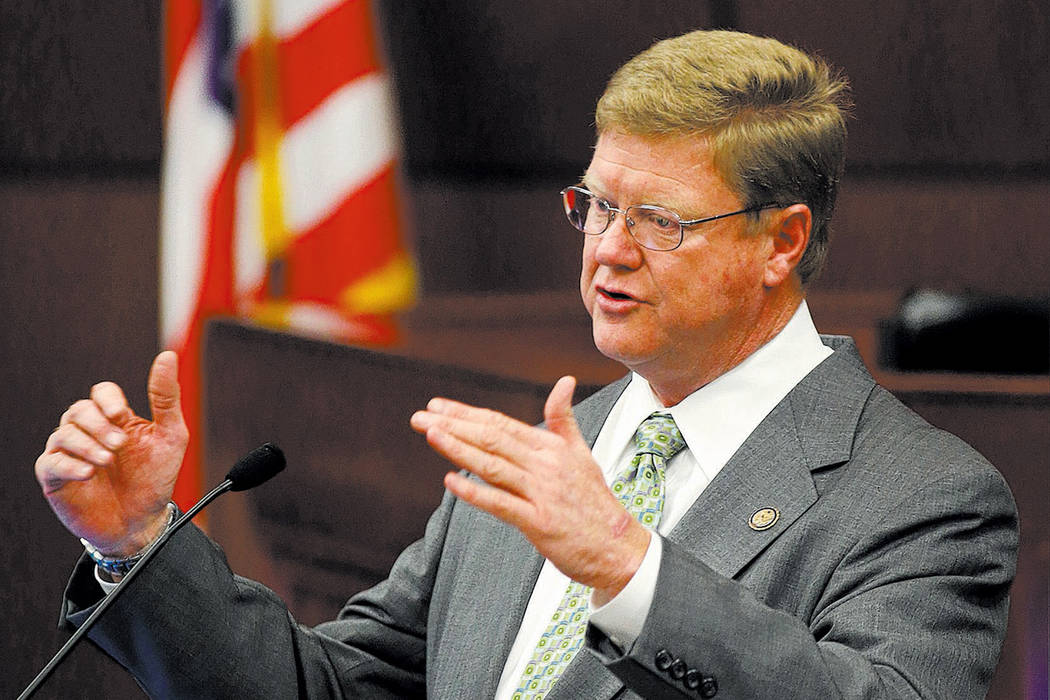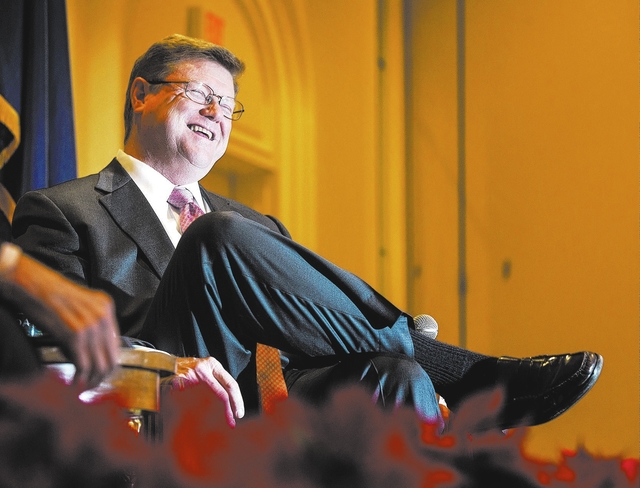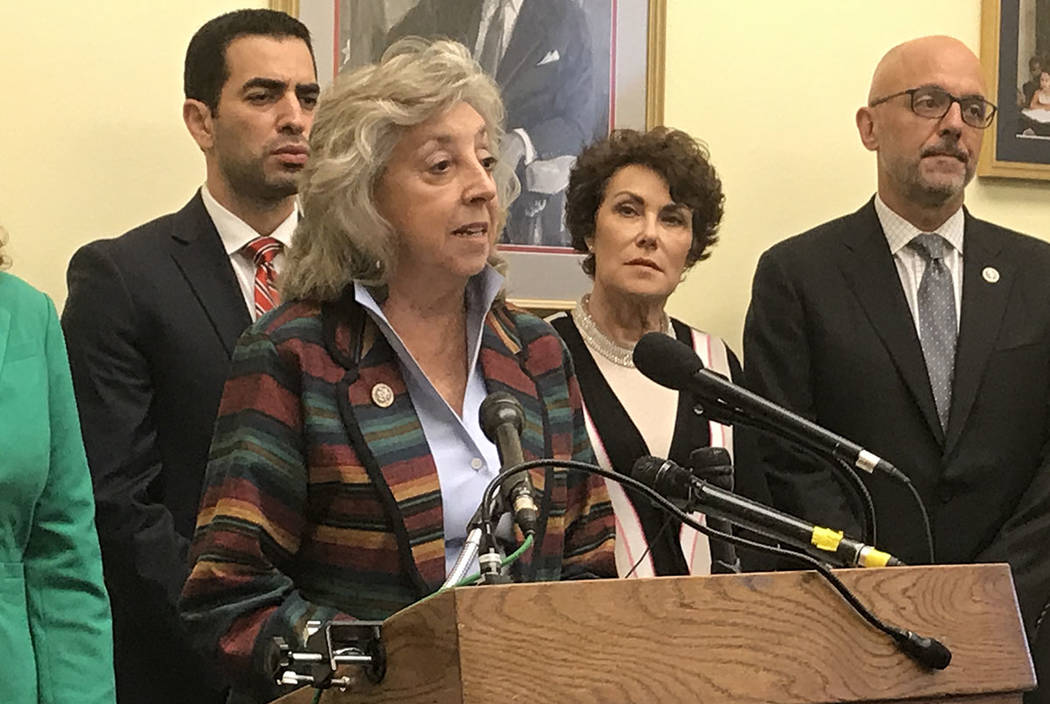Nevada lawmakers urge Congress to change federal marijuana laws
WASHINGTON — Nevada lawmakers said Tuesday that Congress must address federal marijuana laws following a decision by the Trump administration to lower the barrier on federal prosecutions in states that have decriminalized use for medical and recreational purposes.
Rep. Dina Titus, D-Nev., and Rep. Mark Amodei, R-Nev., are working on legislation filed by Republicans and Democrats to amend the Controlled Substances Act and allow marijuana to be made available for medical research and use, and another bill allowing states to regulate marijuana as they do alcohol.
In addition, Titus sent a letter to House Speaker Paul Ryan, R-Wis., and House Minority Leader Nancy Pelosi, D-Calif., urging them to include protections in a final 2017 spending bill to prevent federal prosecutions in 45 states that have passed medical marijuana laws and eight states, including Nevada, that allow its sale for recreational use.
Titus said given the importance of this issue for her Las Vegas district, if those protections are not in a final appropriations bill, “I will be forced to oppose.”
Amodei, in a conference call with state reporters, said he has talked to Titus about the legislation and is open to bills filed by both Republicans and Democrats to change current federal law.
Despite actions last week by the Trump administration, Amodei said there was no reason to panic about a surge or federal crackdown on people for simple possession. And, he said, it was up to lawmakers to change outdated laws.
Amodei said it’s time “Congress get off its butt and start dealing with the issues.”
Attorney General Jeff Sessions last week announced that he was lowering a barrier that held back prosecution of federal marijuana laws in states that had decriminalized its use.
Sessions repealed an Obama-era protection for states. The reversal sparked outrage from Republican and Democratic lawmakers from states that allow marijuana use, like Nevada, where voters approved its consumption.
Rep. Jacky Rosen, D-Nev., urged Sessions to reconsider in a letter Tuesday. She said the cannabis industry in Nevada has created 6,000 well-paying jobs, while medical marijuana provides benefits for veterans suffering from combat and other ailments.
Amodei suggested that Sessions’ announcement was merely “checking a box” to say he would enforce all federal laws.
But Republican Sen. Cory Gardner of Colorado, a state that allows recreational use, said on the Senate floor last Thursday that Sessions broke a pledge to him. Gardner threatened to put a “hold” on every Trump administration nominee for a Justice Department office that requires Senate confirmation.
Gov. Brian Sandoval, a Republican, and the Nevada congressional delegation oppose the Trump administration decision, citing the will of voters in the state to approve use of marijuana and levy a tax on sales, which have been factored into the state’s budget.
Titus said the $600 million cannabis industry in Nevada results in $60 million in tax revenue for schools. She said the Trump administration decision could stifle nearly $1 billion in new investments.
Amodei said he and Titus were working together on legislation filed by Rep. Andy Harris, R-Md., to make marijuana available to medical research and use, and another bill filed by Rep. Jared Polis, D-Colo., to regulate pot like liquor.
Amodei said he was open to changing federal laws on marijuana, which were put in place a half century ago.
“Things have changed in the last 50 years,” Amodei said.
Contact Gary Martin at gmartin@reviewjournal.com or 202-662-7390. Follow @garymartindc on Twitter.
























